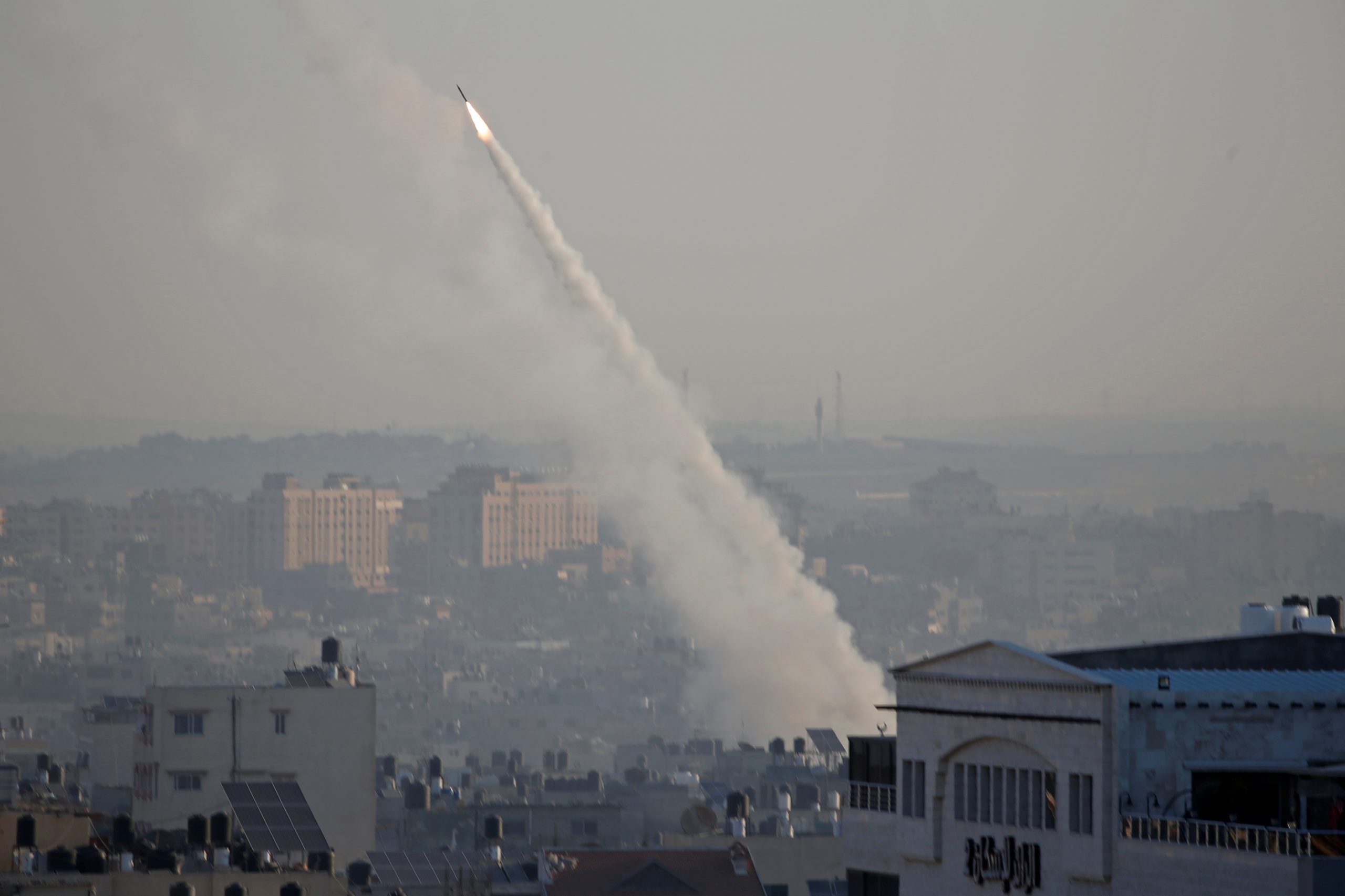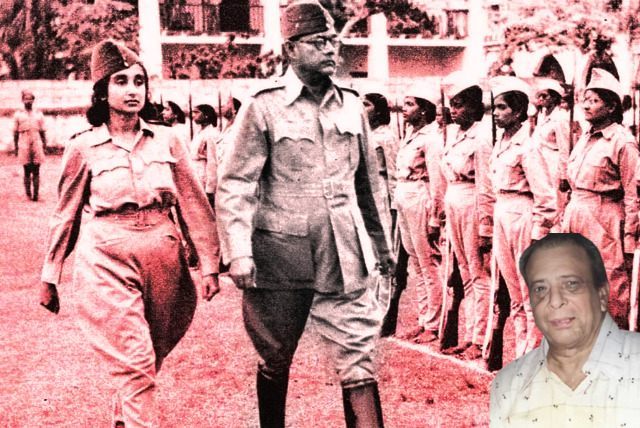
Is there an end in sight to the deadly fighting in Gaza and Israel?
In continuing unrest and exchange of rockets from Gaza and airdropped bombs from Israel, over 148 Palestinians, including several children, have been killed. On the Israeli side, more than 1500 rockets fired from Gaza onto Tel Aviv, Lod, Ashkelon, Ashdod, Sderot and other urban centres have resulted in killing of 10 persons, including a soldier, injuring a large number of Israelis and carrying out massive destruction. In all previous engagements, the spiralling of violence has been graduated but this time it has gone through the roof and only providence and intervention by US and regional players may be able to carry out the de- escalation. For lots of families on both sides of the line, this Eid would not be having any reasons for celebrations.
During the month of Ramadan and as a run up to the Independence Day of Israel on 15 May, called Al Naqba or Dooms Day by their Arab neighbours; tempers normally run high and clashes between exuberant Arab youth after breaking the fast in the evening (Iftar) and the enhanced Israeli Security forces are not uncommon. As luck would have it, this year both the events have coincided with Eid Ul Fitr being two days prior to Israeli Independence Day.
There were two flashpoints for the present unrest, the first being the eviction orders by court to six Palestinians families in Sheikh Jarrah neighbourhood of East Jerusalem. The Arab families had been settled there after the 1948 war by United Nations Relief and Works Agency for Palestinian Refugees (UNRWA) in the evacuee property which was claimed by a Jewish family in recent years. A crowd gathered on the appointed day of eviction — May 6, 2021 — to restrain the authorities from forcefully evacuating the Arab families. The police had to use riot control measures to disperse the crowd.
The second flashpoint was the clashes between Arab youths and Israeli security forces in the vicinity of the Al Aqsa Mosque or the Temple Mount as Jews call it. During the month of Ramzan the Muslims carry out an additional prayer called Taraweeh prayer (night prayer) for an hour-and-a-half after breaking their fast around 7 pm. In this auspicious month the crowds swell in Al Aqsa Mosque in Jerusalem, the third most revered place of worship for Muslims after Mecca and Medina.
Therefore, the Israeli security forces have laid down a limit of ten thousand worshippers at any one time in the premises. The place is also believed to be the exact location of Temple Mount revered by the Jews and they are allowed to worship on the Western Wall of the monument. Heavy presence of Israeli security forces is ensured during the Ramazan month to avoid any untoward incidents. After the Friday prayers on the evening of May 7 as the crowds were dispersing around 9.30 pm, clashes took place between the police and worshippers.
After the clashes, the crowd chanted “Gaza! Gaza ! Come to our rescue”. Based on these requests, the leader of Hamas in Gaza Ismail Haniyeh launched 200 rocket attacks on population centres of Israel including Jerusalem and Tel Aviv. PM Netanyahu and Defence Minister Benny Gantz reacted swiftly and launched air attacks on Hamas Headquarters, Police Headquarters and the TV tower in Gaza, killing some prominent Hamas leaders, including Bassem Issa. In the collateral damage, a large number of innocent civilians, including children, were also killed and wounded. Up to two Israeli Armed Forces (IDF) brigades with tanks and other heavy weapons have been deployed around Gaza indicating possibility of a ground attack and all-out war. The clashes continue at the time of writing of this article and the end is not in sight.
For the first time in the recent history of Israel, communal clashes have erupted in all major urban areas and both Jews and Arabs are at each other’s throat. Netanyahu has stated that they are fighting on two fronts but will take all actions to quell the communal clashes and prevent them from becoming riots. These clashes do not augur well for peace in the region and Israel is seeking mediation by Egypt, Saudi Arabia, UAE, Bahrain and other Muslim countries.
The previous prominent exchanges of fire between Gaza and Israel lasted several weeks with the longest one in 2014 which went on for 52 days. This time the intensity of firing of rockets has been much higher. The Iron Dome anti-air defence of Israel could only stop around 90 per cent of the rockets with 10 per cent of the rockets carrying out heavy destruction at the target sites.
The clashes have taken place when there is a political uncertainty in Israel as Bibi Netanyahu, the leader of Likud party, has failed to show majority and form a government despite having largest number of legislators, and having been invited by the President to do so. As was suggested in the previous article, President Raven has now invited the opposition leader Yair Lapid to form the government in one month. Netanyahu and his supporters will now try and consolidate their position by taking a tough stance against the rocket attacks from Gaza and galvanise popular support of Israeli masses to their advantages to continue to stay in power. In fact, he has already thanked the Hamas leader for uniting all Israelis but the clashes in the streets tell a different story.
The two-nation theory forwarded by the Untied Nations in 1948 is almost derailed by the outright support given by Trump Administration to the Israeli government in the last four years wherein USA recognised Jerusalem as the capital of Israel, a fact yet to be ratified by the international community that feels Jerusalem should be an international city as per the UN plan. It may be recalled that the Trump administration also facilitated peace treaties and exchange of diplomatic relations between UAE and Israel and Bahrain and Israel. Saudi Arabia was also warming up to Israel as US had given them a common enemy in the form of Iran. The Biden administration will have an uphill task to bring back semblance of balance of power in Middle East.
The timing has also been crucial from the view of political activity on the Palestinian side as well. The Assembly Elections of the Palestinian Authority were to be held on 21 May followed by the Presidential elections after a month or so. Considering the advanced age of the Palestinian maverick leader Mahmoud Abbas, certain younger Palestinians leaders were jumping into the fray, including one undergoing life imprisonment. Political activity has been hit badly by the postponement of Assembly elections indefinitely; the younger leaders will have to wait for a little longer.
It may be recalled that Gaza is a land locked strip of 40 by 12 km having Israel on two sides, Egypt on the third and the Mediterranean Sea on the fourth. Israel vacated Gaza Strip in 2005 when the strong man Ariel Sharon was the PM. This unilateral action by Israeli leadership was the extension of “exchange of land for peace” programme of Israel that had worked well with Egypt and Jordan. The Jewish settlers were relocated outside the Gaza Strip. Israel controls the limited number of routes of ingress and egress into the Gaza Strip and the Hamas runs the Administration in Gaza since coming to power in 2006 and finds itself resource strafed, job crunched and with sheer lack of advanced medical facilities. The two million population of Gaza Strip makes it the third most densely populated urban area in the world. The people of Gaza are at the mercy of Israel which has carried out naval and air blockade of the Strip since 2006.
The UN Envoy in Middle East has mentioned that the clashes may result in an all-out war. War between Israel and Palestinians is, however, least likely as there is no parity between the two sides. The Palestinians do not have a conventional army or ai rforce. Very soon the stockpile of rockets in Gaza will run dry and the Palestinians from Gaza and West Bank are likely to launch the third Intifida, a sub-conventional form of warfare. The second Intifida lasted five years at the turn of the century. The region may remain in turmoil for some time, and it may be a long haul to normal times. The Middle East crisis is the first foreign policy acid test for the Biden Administration to bring peace to the region.
Once again, a very well written and informative article about a matter carried forward in history from biblical times. The descendants of Abraham are once again at each other’s throats.As beliefs stand, they subscribe to different interpretations of their prophets and faith, and to cap it are the practical reality of control of land to sustain lives and livelihoods.In general terms Israel has a stranglehold over the West Bank and the Gaza Strip.However,peace been elusive.In the current era of ultra nationalism based on faith/community it suits leaders like Netanyahu to galvanise his supporters among the Israeli Jews.Into the cauldron jumped the maverick Donal Trump with his administration giving recognition to Jerusalem as the capital of Israel.As analyzed by the author,the matter is not likely to see a long term resolution in the foreseeable future though wise counsel may douse the flames for some time.Not only Joe Biden but even future administrations in America are likely to be bedeviled with the Israeli-Palestinian issue.Excellent Ike Singha.



